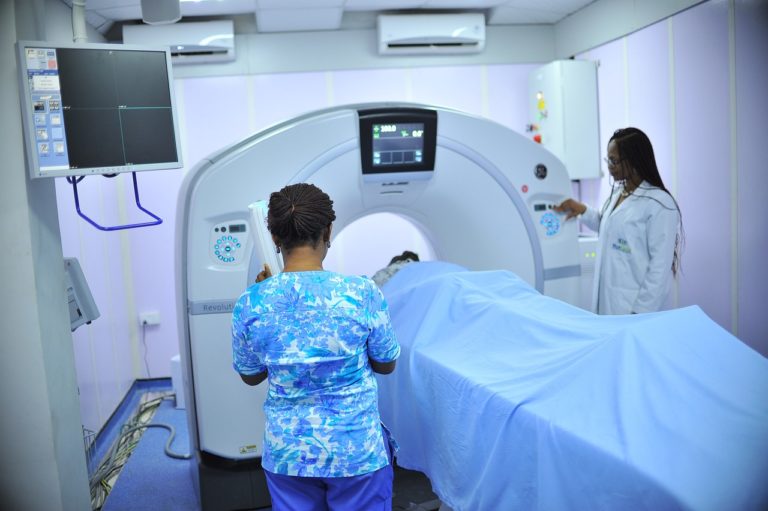Book Appointment Now

The Role of Nurse Informaticists in Healthcare IT Development
The transformation of healthcare into a digitally-driven industry has significantly improved clinical efficiency, patient safety, and decision-making processes. At the center of this digital evolution are nurse informaticists—registered nurses with specialized training in informatics who integrate their clinical knowledge with technical expertise to improve healthcare information systems. The role of nurse informaticists in healthcare IT development extends beyond simple user training or IT troubleshooting; they actively contribute to the design, implementation, and optimization of systems that improve care delivery, enhance data management, and support evidence-based practice.
Count on our nursing experts to deliver 100% custom paper on the role of nurse informaticists in healthcare IT development
Write my nursing essay
Integrating Clinical Expertise with Technological Insight
Nurse informaticists serve as the vital link between clinicians and IT professionals. Unlike traditional IT personnel who may not fully understand the intricacies of patient care, nurse informaticists bring clinical knowledge to technology planning and decision-making. Their practical understanding of nursing workflows allows them to interpret clinical needs and translate them into technological requirements that software developers can implement. Sensmeier (2020) emphasizes that nurse informaticists ensure healthcare IT systems meet frontline clinicians’ expectations while aligning with regulatory and safety standards.
For example, during the planning of an Electronic Health Record (EHR) system, nurse informaticists contribute by recommending interfaces that support nursing documentation, care coordination, and quality monitoring. Their involvement from the earliest stages of design helps to ensure that the technology aligns with patient care priorities and not just administrative or billing functions.
Designing Clinically Relevant Healthcare IT Systems
The design of healthcare IT systems requires a clear understanding of how care is delivered at the bedside. Nurse informaticists ensure that system features—such as charting templates, decision support tools, and data dashboards—align with clinical practices. They work with cross-functional teams to develop user interfaces that are intuitive and reduce cognitive load. In this way, nurse informaticists help to mitigate issues such as duplicate documentation, irrelevant alerts, and non-standardized data entry practices, which can interfere with care delivery and introduce risks to patient safety.
Topaz and Pruinelli (2017) argue that the value of nurse informaticists during the design phase lies in their ability to advocate for interfaces that are user-centered and clinically meaningful. They ensure that system components—such as assessment flowsheets, medication administration records, and handoff tools—are designed to support decision-making, compliance, and communication across the continuum of care.
Leading Implementation and Change Management
One of the most critical contributions of nurse informaticists is during the implementation of healthcare IT systems. Transitioning from paper-based systems or legacy EHRs to new platforms can disrupt workflows, increase stress, and reduce productivity—if not managed effectively. Nurse informaticists often assume leadership roles in planning and executing implementation strategies that promote clinician buy-in, minimize resistance, and accelerate adoption.
Alotaibi and Federico (2017) highlight the importance of nurse informaticists in facilitating staff education and training. They design training programs tailored to various user groups and learning styles and often serve as super-users or department-based champions. These roles allow them to provide peer-to-peer support, troubleshoot issues in real-time, and relay user feedback to developers for continuous improvement. Their active involvement helps build trust among clinical teams and ensures smoother transitions.
Additionally, nurse informaticists play a pivotal role in workflow redesign during the implementation process. When new systems are introduced, existing workflows often require revision to avoid redundancy and inefficiency. Nurse informaticists analyze current processes, map new workflows, and validate changes through pilot testing. This ensures that new digital tools are not only integrated seamlessly but also enhance rather than disrupt clinical operations. See also Nursing Informatics-Implementation of New Systems
Continuous Optimization for Quality and Safety
Even after a system is launched, the work of nurse informaticists continues. They monitor system usage, assess its impact on clinical outcomes, and identify areas for optimization. Using data analytics and performance metrics, they evaluate whether the system supports documentation accuracy, patient safety, staff productivity, and compliance with quality benchmarks. Their continuous involvement ensures that the technology evolves in response to user needs and organizational goals.
Glassman (2017) underscores the role of nurse informaticists in transforming raw data into actionable insights. They analyze EHR-generated data to identify trends in medication errors, infection rates, or readmission patterns and work with quality improvement teams to develop interventions. Nurse informaticists may also refine order sets, adjust clinical pathways, or redesign documentation tools based on real-world performance and user feedback.
Furthermore, optimization efforts often focus on improving the user experience. If clinicians are overwhelmed by alerts or find documentation processes too time-consuming, nurse informaticists intervene by reconfiguring alerts, streamlining templates, or introducing voice-recognition technologies. By making systems more efficient and intuitive, they reduce clinician burnout and enhance care delivery.
Enhancing Clinical Decision Support
Clinical Decision Support Systems (CDSS) are integral components of modern healthcare IT, offering evidence-based alerts, guidelines, and diagnostic assistance to clinicians. Nurse informaticists play a central role in designing, evaluating, and refining these tools. Their clinical background ensures that decision support interventions are relevant, timely, and aligned with nursing and interdisciplinary workflows.
McBride et al. (2018) explain that nurse informaticists help mitigate the risk of “alert fatigue”—a phenomenon where excessive or irrelevant system alerts cause users to ignore even critical warnings. By prioritizing and customizing alerts based on clinical contexts, nurse informaticists enhance the effectiveness of CDSS and support better clinical judgment. This targeted decision support is particularly important in high-stakes areas such as medication administration, sepsis detection, and falls prevention.
In addition, nurse informaticists ensure that clinical decision support tools are updated regularly to reflect new evidence, protocols, or regulatory changes. This dynamic updating process strengthens the health system’s capacity to provide consistent, evidence-based care.
Promoting Interdisciplinary Collaboration and Innovation
Nurse informaticists often serve as facilitators of collaboration among diverse stakeholders in the healthcare ecosystem. Their ability to speak the language of both clinical and IT teams makes them invaluable in multidisciplinary project environments. Whether contributing to the development of telehealth platforms, mobile health apps, or remote monitoring tools, nurse informaticists advocate for features that promote patient engagement, continuity of care, and equitable access to services.
Their work also extends into innovation by identifying clinical pain points and proposing technology-driven solutions. For instance, a nurse informaticist might propose a mobile documentation tool for home health nurses or design a dashboard that aggregates patient risk scores for early intervention. By staying current with emerging technologies and healthcare trends, nurse informaticists help their organizations stay competitive and future-ready.
Shaping Policy, Compliance, and Ethical Use of Technology
Beyond the clinical setting, nurse informaticists contribute to policy-making and regulatory compliance. They participate in committees that establish data governance standards, privacy protocols, and documentation requirements. Their involvement ensures that technology initiatives align with legal and ethical principles, such as patient confidentiality, informed consent, and data integrity.
McBride et al. (2018) emphasize the ethical responsibilities of nurse informaticists, including ensuring that health IT systems do not introduce bias, exacerbate disparities, or compromise patient autonomy. Their commitment to ethical informatics practice reinforces the role of nursing as a patient-centered and justice-driven profession.
As healthcare systems increasingly rely on digital technologies to manage care delivery, the role of nurse informaticists in healthcare IT development becomes more crucial than ever. These professionals integrate clinical knowledge with informatics expertise to guide the design, implementation, and optimization of health IT systems that are safe, efficient, and patient-focused. From shaping EHR interfaces to leading implementation and refining clinical decision support tools, nurse informaticists ensure that digital transformation efforts truly enhance the quality of care. As frontline advocates for clinicians and patients alike, they embody the potential of nursing to drive innovation, improve outcomes, and shape the future of healthcare. See also NRSE 6051 Transforming Nursing and Healthcare Through Technology
References
Alotaibi, Y. M., & Federico, F. (2017). The impact of health information technology on patient safety. Saudi Medical Journal, 38(12), 1173–1180. https://doi.org/10.15537/smj.2017.12.20631
Glassman, K. S. (2017). Using data to drive clinical excellence. Nursing Administration Quarterly, 41(1), 24–32. https://doi.org/10.1097/NAQ.0000000000000217
McBride, S., Tietze, M., Robichaux, C., Stokes, L., & Weber, E. (2018). Ethical considerations for the nurse informaticist. Nursing Administration Quarterly, 42(1), 84–89. https://doi.org/10.1097/NAQ.0000000000000263
Sensmeier, J. (2020). The role of nursing informatics in transforming healthcare. Nursing Management, 51(11), 20–27. https://doi.org/10.1097/01.NUMA.0000703138.44109.71
Topaz, M., & Pruinelli, L. (2017). Big data and nursing: Implications for practice, research, and education. Nursing Outlook, 65(3), 285–291. https://doi.org/10.1016/j.outlook.2016.10.007







